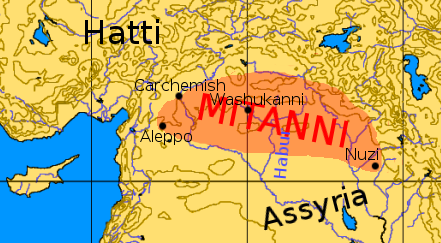Kurigalzu III, a child by modern day approximations, managed to escape unharmed during two subsequent revolts which changed the hands of the Babylonian throne. First, by those who overthrew and killed Kadashman-Kharbe, followed by his great-grandfather's retribution, in slaying those very same revolutionaries, and being responsible for placing the seat into his hands. With the king of Assyria's support, the child-king ascended to rulership without resistance.
King Kurigalzu III of Babylon led a campaign against Elam, for reasons unknown. There is no record to admit Elam's hand in the revolts ever taking place, and yet the Kassites attacked king Khurbatilla's lands all the same. This war effort was such a success that by its end, Kurigalzu III's forces had managed to capture the king of Elam, Khurbatilla, as prisoner, before enjoying the rich spoils that followed.
However, instead of returning home as a celebrated conqueror on the cries of victory, Babylon's young king was met by grave tidings which infected the Near East like an overnight plague. The Asiatic provinces of Egypt were seething with anger. Open revolts by several localized populaces led governors of their respective region to plead to king Ikhnaton to send reinforcements to fight back against open rebellion. The Egyptian king, nearing the end of his reign, continued to turn a deaf ear, and one-by-one the empire of the Nile's dominion fell into turmoil.
Simultaneously, as Egypt's decadence spiraled into a fall from grace, the Hittite nation of the north rose. Ruled by king Shubbiluliuma, the Hittite king (1411-1359), and his people were bound by peace treaties (made by his predecessors) to Egypt during this period, but not by intermarriage as was oftimes customary between royal houses. This meant that their peace was based on a promise. . . Bound by words, not blood. And so the Hittite king waited patiently. It was said that as Syria revolted against Egypt, he smiled. Though this pleasure was short-lived due to an unforeseen interference: The Mitanni.
While Egypt declined to reinforce her territories, its ally in the Mitanni did in fact arrive, in a valiant attempt to stem the violence with order. The key to the entire uprising was a small strategic point on the Phoenician Coast, Simyra, and king Tushratta (1399-1360) of the Mitanni led a counter-attack against it. Even though unsuccessful, king Shubbiluliuma's displeasure at the Mitanni's aid, in trying to revitalize the power of their Egyptian overlords, revealed his true intentions all along.
The Hittites then invaded the Mitanni, Egypt's only saving grace amidst the chaos. The neighboring lands between their nations (Ishuwa) now shifted ownership to the Hittites. As Tushratta retreated with his forces back to safety, yet another uprising took place, where he was killed by his own son, Artatama1.
While the west raged in wildfire and blood, the untouched region of the east, remained in question. How would Assyria and Babylon, now united and ruled by the same blood of king Ashur-uballit, respond to this storm?
- ARATAMA NOT ONLY MURDERED HIS FATHER, BUT ONCE THE DUST HAD SETTLED AND THE SMOKE HAD CLEARED, IT WAS THEREAFTER REVEALED THAT HE ALSO CARRIED OUT THE SAME CRUEL FATE TO HIS ELDER BROTHER.




No comments:
Post a Comment